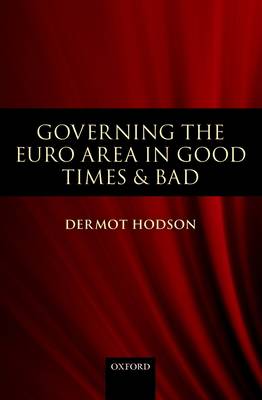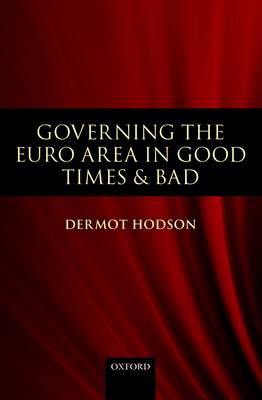
- Retrait gratuit dans votre magasin Club
- 7.000.000 titres dans notre catalogue
- Payer en toute sécurité
- Toujours un magasin près de chez vous
- Retrait gratuit dans votre magasin Club
- 7.000.0000 titres dans notre catalogue
- Payer en toute sécurité
- Toujours un magasin près de chez vous
201,45 €
+ 402 points
Description
Can the euro area survive without a more centralized economic policy? What lessons can be drawn from Economic and Monetary Union about new modes of policy-making in the European Union? Have euro area members spoken with one voice on the international stage and what does this mean for the European Union's ambitions to be a global actor in its own right? This book explores these three key questions through an in-depth analysis of euro area governance from the launch of the single currency in 1999 to the sovereign debt crisis of 2010. Drawing insights from the study of European Union politics, comparative political economy and international political economy, it examines: Economic and Monetary Union's break from the Community method of policy-making; the European Central Bank's ambivalence about the pursuit of ever closer union; the Eurogroup's rise and fall as a forum for economic policy coordination; the interplay between national fiscal institutions and the stability and growth pact; the broad economic policy guidelines' failure to apply peer pressure; the European Union's influence within the G20 and the International Monetary Fund at the height of the global financial crisis; euro diplomacy towards China and other rising powers; and current debates about the fate of EMU and the reform of euro area governance in the aftermath of the global financial crisis. The book's conclusions challenge claims that the euro area is in crisis because of its decentralized approach to decision-making alone and the corollary that the euro can be saved only through a further transfer of sovereignty to the supranational level.
Spécifications
Parties prenantes
- Auteur(s) :
- Editeur:
Contenu
- Nombre de pages :
- 186
- Langue:
- Anglais
Caractéristiques
- EAN:
- 9780199572502
- Date de parution :
- 11-10-11
- Format:
- Livre relié
- Format numérique:
- Ongenaaid / garenloos gebonden
- Dimensions :
- 160 mm x 236 mm
- Poids :
- 430 g

Les avis
Nous publions uniquement les avis qui respectent les conditions requises. Consultez nos conditions pour les avis.






